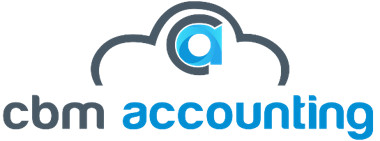[lwptoc]
Selecting the right accounting software is crucial for managing your business finances efficiently. The right tool can help streamline bookkeeping, ensure compliance, and save time. Here’s a guide to help you make an informed decision.
Identify Your Business Needs
Before choosing software, consider your business requirements:
- Do you need payroll management?
- Are you VAT registered and need Making Tax Digital (MTD) compliance?
- Will you require multi-user access or cloud-based accessibility?
- Do you need invoicing and expense tracking features?
Understand Your Business Needs
Before diving into software options, take a step back and assess your specific needs. Consider:
- Business Size and Industry: A freelancer’s needs will differ from a small retail store or a growing e-commerce business.
- Budget: Determine how much you’re willing to spend on accounting software. Options range from free to subscription-based models.
- Features Required: List the essential features you need, such as invoicing, expense tracking, payroll, inventory management, and reporting.
- Technical Skills: Evaluate your comfort level with technology. Choose software that aligns with your technical proficiency.
- Growth Potential: Select software that can scale with your business as it grows.
Explore Different Types of Accounting Software
- Cloud-Based Software: Accessed online, offering real-time data, automatic updates, and accessibility from anywhere. Popular choices include Xero, QuickBooks Online, and FreshBooks.
- Desktop Software: Installed on your computer, offering offline access but requiring manual updates. Examples include QuickBooks Desktop.
- Spreadsheets: A basic option for very small businesses with simple needs, but less efficient and prone to errors.
Compare Popular Accounting Software
Here are some of the best accounting software options for small businesses:
- QuickBooks – Ideal for small to medium-sized businesses; offers invoicing, VAT returns, and payroll management.
- Xero – A cloud-based solution with robust automation and integration features.
- FreeAgent – Great for freelancers and small businesses; easy-to-use and HMRC-compatible.
- Zoho Books – Affordable and feature-rich, perfect for startups.
- FreshBooks – Best for service-based businesses, with excellent invoicing tools.
Evaluate Key Features
- Invoicing: Look for customizable invoices, automated reminders, and online payment integration.
- Expense Tracking: Ensure the software allows you to easily record and categorize expenses, upload receipts, and track mileage.
- Bank Reconciliation: Automate bank reconciliation to ensure your records match your bank statements.
- Reporting: Access essential financial reports, such as profit and loss statements, balance sheets, and cash flow statements.
- Payroll: If you have employees, consider software with integrated payroll features or compatibility with payroll services.
- Inventory Management: For businesses with inventory, look for software that tracks stock levels, manages orders, and generates inventory reports.
- Multi-User Access: If multiple people need access, ensure the software supports multi-user access with appropriate permissions.
- Mobile App: A mobile app allows you to manage your finances on the go.
- Integrations: Check if the software integrates with other tools you use, such as CRM, e-commerce platforms, or payment gateways.
Consider User-Friendliness and Support
- Intuitive Interface: Choose software with a user-friendly interface that’s easy to navigate.
- Learning Resources: Look for software with tutorials, documentation, and online support.
- Customer Support: Evaluate the quality of customer support offered by the provider.
Assess Pricing and Budget
Compare pricing plans and consider:
- Free trials and demo versions before committing.
- Subscription-based pricing vs. one-time payments.
- Additional costs for add-ons, payroll, and support.
Take Advantage of Free Trials and Demos
- Test the Software: Most accounting software providers offer free trials or demos. Take advantage of these to test the software’s features and user-friendliness.
- Compare Options: Compare different software options side-by-side to determine which one best suits your needs.
Read Reviews and Seek Recommendations:
- Online Reviews: Read online reviews from other small business owners to get insights into their experiences.
- Recommendations: Ask for recommendations from other business owners, accountants, or industry peers.
Consider Scalability
- Growth Plans: Choose software that can scale with your business as it grows.
- Upgrade Options: Ensure the software offers upgrade options to accommodate your future needs.
Check for Compliance and Security
- Ensure the software is MTD-compliant if your business is VAT-registered.
- Look for data encryption and secure backups to protect financial data.
- Verify if it aligns with UK tax laws and regulations.
Final Thoughts
Choosing the right accounting software is an investment in your business’s financial health. Take your time, evaluate your needs, and don’t hesitate to ask for help. By making an informed decision, you can streamline your accounting processes and focus on growing your business.
Let CBM accounting assist you in selecting a suitable software for your business!

